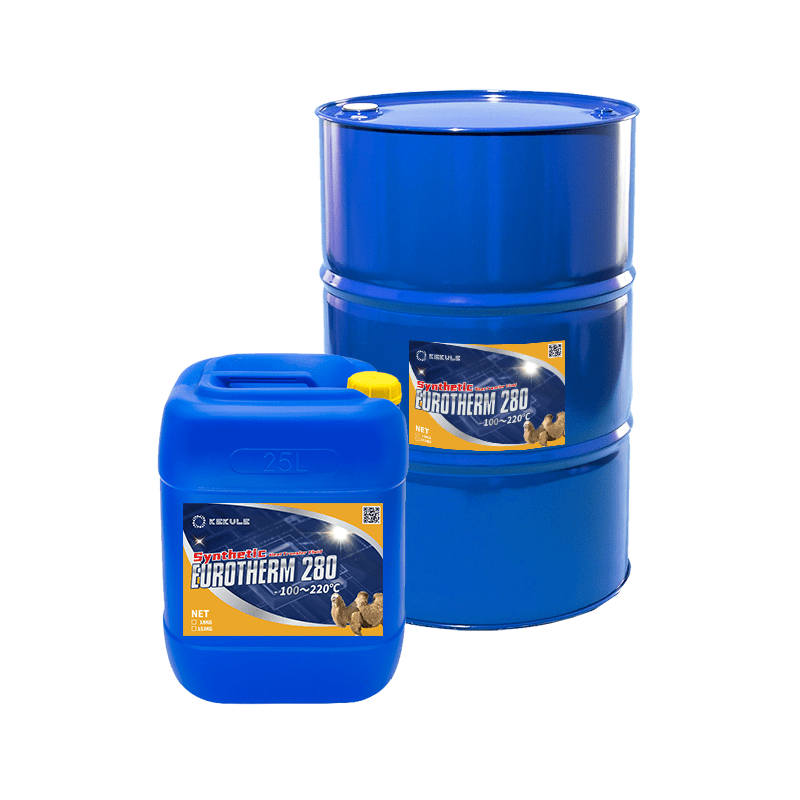The Importance of Thermal Security in Heat Transfer Fluid Choice
The Importance of Thermal Security in Heat Transfer Fluid Choice
Blog Article
The Duty of Heat Transfer Fluid in Enhancing System Efficiency and Safety
In the ever-evolving landscape of industrial processes, heat transfer liquids (HTFs) arise as pivotal elements in maximizing both system efficiency and safety and security. These specialized fluids, known for their remarkable thermal conductivity and controlled viscosity, make it possible for reliable warm exchange, which is crucial for structured operations. The effect of HTFs extends past plain effectiveness; their intrinsic thermal security and low flammability dramatically contribute to run the risk of reduction. As sectors grapple with the requirement for high-performance and safe operations, comprehending the nuanced function of HTFs comes to be important. What specifically makes HTFs so important in today's commercial frameworks?
Understanding Heat Transfer Liquids
Heat transfer liquids, commonly taken into consideration the lifeblood of thermal administration systems, play a crucial role in managing temperature level throughout different commercial applications - heat transfer fluid. Industries such as chemical handling, power generation, and manufacturing depend on heat transfer liquids to ensure equipment runs effectively and securely.
The choice of an ideal heat transfer liquid is important to the success of a thermal monitoring system. In summary, a thorough understanding of heat transfer fluids is important for enhancing system efficiency, ensuring functional safety and security, and accomplishing cost-effective thermal administration options.
Secret Characteristic of HTFs

The particular warm ability of an HTF delineates the amount of warm power called for to alter its temperature, influencing how successfully the system can react to temperature level variants. The boiling and freezing factors of HTFs likewise play a pivotal role, specifically in systems exposed to severe temperature levels, making certain liquid stability and preventing stage changes throughout operation.
Enhancing System Performance
To enhance system efficiency with warm transfer fluids (HTFs), it is important to integrate an extensive method that takes into consideration both fluid residential properties and system design. The choice of an ideal HTF is pivotal, as its thermal conductivity, viscosity, and specific warm capacity directly influence the effectiveness of warmth exchange.
Similarly crucial is the design of the warmth transfer system itself. The surface location and product of warm exchangers ought to be maximized to maximize warmth transfer performance.
Boosting Operational Safety And Security
Making sure operational safety and security in heat transfer systems calls for a precise concentrate on both the properties of warmth transfer site here liquids (HTFs) and the design and maintenance of the whole system. HTFs need to have thermal security, low flammability, and proper thickness to lessen risks such additional hints as leakages, fires, and system breakdowns. Choosing the best HTF is crucial as it figures out the system's capability to manage temperature level variations without endangering safety.
The layout of the system ought to integrate redundancies and fail-safes to take care of potential dangers successfully. This includes the integration of security shutoffs, stress relief devices, and temperature level tracking systems to identify and address abnormalities without delay. Normal maintenance is critical to ensure that all components, consisting of pumps, pipelines, and seals, are operating appropriately and are devoid of wear or deterioration, which can result in dangerous leakages or failures.
In addition, personnel in charge of the operation and maintenance of warm transfer systems need to be effectively trained in safety methods and emergency situation action treatments. Consistent training programs and safety drills can considerably decrease the chance of crashes, making certain a more secure working environment. Ultimately, a detailed technique to safety and security-- including fluid choice, system style, and labor force training-- is essential for optimum functional safety.
Industry Applications of HTFs
Commonly used across different sectors, heat transfer liquids (HTFs) play an essential function in boosting the efficiency and integrity of thermal administration systems. In the chemical sector, HTFs are integral for preserving accurate temperatures during reactions, informative post ensuring item uniformity and quality. They help with warmth exchange procedures in activators, condensers, and warm exchangers, thereby enhancing power usage and reducing waste.
In the oil and gas sector, HTFs are utilized in both upstream and downstream procedures. They take care of temperature level in exploration operations and boost efficiency in refining processes by giving steady thermal conditions. This causes decreased downtime and enhanced security, particularly in critical operations such as distillation and fracturing.
The renewable resource industry additionally profits substantially from HTFs, especially in focused solar power (CSP) plants. Below, HTFs move caught solar power to power turbines, allowing reliable electrical energy generation. The pharmaceutical market counts on HTFs for precise temperature control in both synthesis and storage, making sure item effectiveness and safety.


Furthermore, the food and beverage market utilizes HTFs for pasteurization, sanitation, and food preparation processes, boosting both product safety and production performance. Throughout these industries, HTFs work as indispensable elements in keeping ideal functional efficiency and security.
Verdict
Warmth transfer fluids are necessary in boosting industrial system efficiency and safety by providing high thermal conductivity, optimum thickness, and thermal security. Appropriate option and maintenance of HTFs boost warmth exchange effectiveness, therefore boosting operational effectiveness.
Report this page